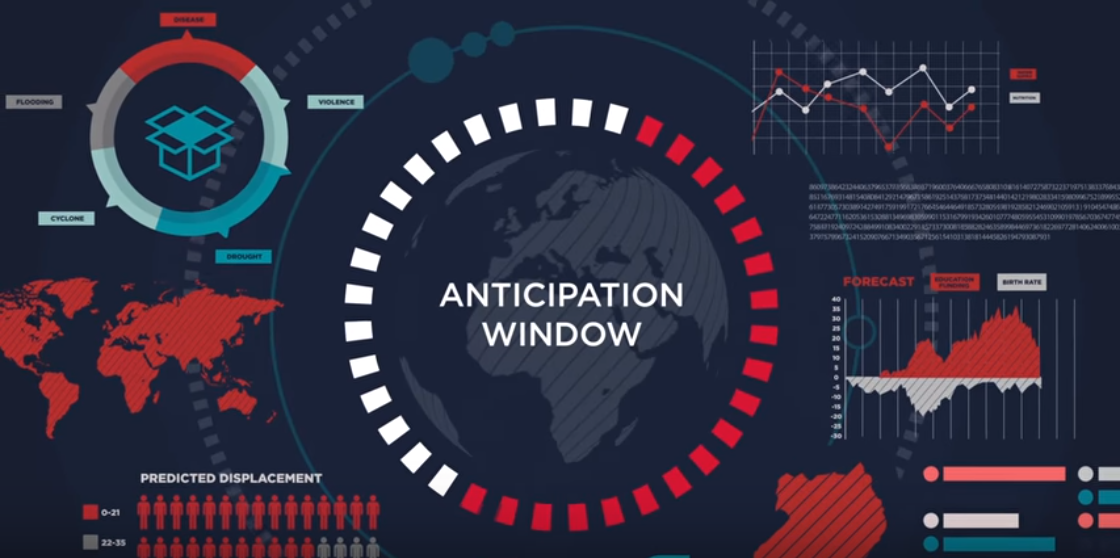More members are using the Start Fund to act early, but we are still a long way from a risk-informed, proactive aid system. Start Network’s Luke Caley reflects on what we’ve learned so far and discusses the potential shape of things to come.
In July 2017, the Start Fund was alerted to three potential crises in Asia and Africa. Instead of worrying about escalating risks, our members used the Start Fund to address them before they got out of hand. Uniquely, the anticipation window for the Start Fund enables our members to apply for funding ahead of a crisis to minimise harm and loss.
Since the launch of the anticipation window for the Start Fund last year we have worked with our members to develop new guidance and processes to use the fund in order to act early; we are providing training for our members in headquarters and in-country; commissioning new forecasting information services by ACAPs and scientific partners such as the European Centre for Medium Range Weather Forecasts; as well as establishing a network of experts in risk modelling, early action and food security who provide technical input into our decisions. We’re seeing this ground work pay off as we start to build momentum, albeit running up a really steep hill.
The anticipation alerts that were raised in July aimed to address 1) rapid melt of high levels of snowfall leading to increased risk of flash flooding and landslides in Tajikistan, 2) forecasted flooding of already extremely vulnerable populations in eastern Niger, and 3) predicted electoral violence in Kenya, following a Start Analysis for Action grant funded multi-agency context analysis and scenario development process (GECARR). The allocation decisions about whether to release funding for these crises were difficult. Decision-makers grappled with issues which are becoming familiar, including fundamentally, how certain do we need to be before ‘pushing the button’ to act? These decisions push our members to the far edges of their comfort zone, requiring bravery and intelligence, which thankfully they have in abundance.
And yet we are gathering more and more evidence that it is worth it. Discussing an earlier anticipation alert, activated ahead of predicted food insecurity in East Timor, our members acknowledged the challenges in working in this way and the long list of could-do-betters, however there was genuine gratitude for the space of possibility that acting early brings to support communities to respond to shocks and stresses. They expressed gratitude that this year, responding to predicted impacts rather than waiting to watch malnutrition rates rise, operational staff could act early to avoid families going hungry in the first place.
But we still have a long way to go. We need better analytics to support agencies and decision-makers to identify the right signals and have confidence in using them to act. We need to plan better and we need better coordination. We need to use different financing modalities to make our money work harder and be organised according to risk. We need to reach across the room to the fine fellows in the development departments of our organisation to learn and share best practices. We need to ensure we are building local systems which take advantage of local and global resources and capabilities. We need to encourage each other to understand and act on risks.
We also need pathfinders who can lead the ascent. Over the last year we have established a group for just that task called the Forecast-based Warning, Analysis and Response Network, or Forewarn. Forewarn includes early warning experts from inside and outside our membership, including the Red Cross, scientists, risk modellers, behavioural scientists as well as plain old vanilla humanitarians. In this group we have discussed, trained on, and agreed ways to address common issues affecting our ability to act early. These have included evaluating the value of early action, communicating uncertainty in decision-making, making forecasts as a team, working together to understand risk using context analysis and scenario-building approaches, adapting risk models to trigger index-linked insurance schemes etc.
Forewarn currently provides advice for every Start Fund alert, based on the shared understanding and trust we are building through monthly meetings. We are in the process of thinking through what this embedded network could do to support shifting incentives and systems towards early action, especially at a national level. This will include development of national Forewarn groups to support linking pre-agreed actions to forecasting triggers for pre-agreed financing.
The Start Network is aiming to change the aid system to make it more anticipatory. We aim to equip Forewarn as a platform to shift incentives and provide the embedded capability to enable this. If you want to join the A team, please get in touch with us Luke.Caley@startnetwork.org

